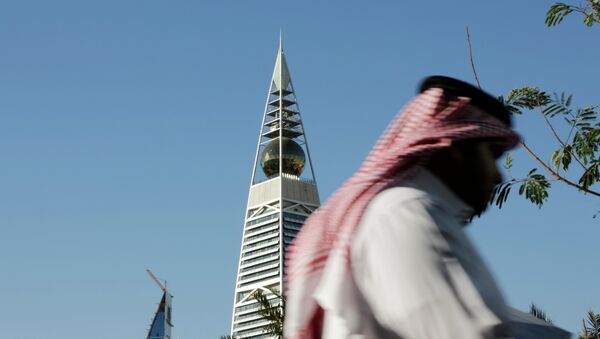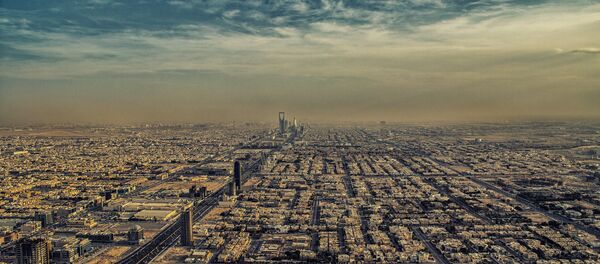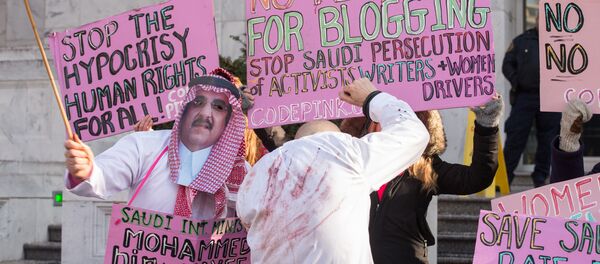On Monday, the Saudi Arabian government announced it was interested in hiring eight "religious functionaries." Job postings appeared on the country’s civil servants website, promising a bottom-dollar salary to “experienced swordsmen” who could perform the nation’s ever-growing number of beheadings.
Only three days later, in a surreal twist, reports surfaced that the Kingdom was also lobbying the United Nations to become the next head of the Human Rights Council after Germany completes its term.
The announcement has already drawn a collective guffaw among human rights activists, who were quick to point out Saudi Arabia’s position as one of the global leaders in violating civil liberties, not upholding them.
"We urge US Ambassador Samantha Power and EU foreign minister Federica Mogherini to denounce this despicable act of cynicism by a regime that beheads people in the town square, systematically oppresses women, Christians, and gays, and jails innocent bloggers like Raif Badawi for the crime of challenging rulers’ radical brand of Wahabbist Islam," Hillel Neuer, executive director of UN Watch, said in a statement.
"Electing Saudi Arabia as the world’s judge on human rights would be like making a pyromaniac as the town fire chief," he added.
Neuer may have a point. For one, there’s the aforementioned Raif Badawi, who was sentenced to seven years in prison and 600 lashes for allegedly insulting Islam on his website. That sentence was later increased to ten years in prison and 1,000 lashes.
Then there’s the Kingdom’s growing use of capital punishment. So far this year, 85 people have been put to death, what Amnesty International has called a "macabre spike" over the 87 people killed throughout the entirety of 2014.
Most of these executions are carried out through public beheadings, and many for non-lethal offenses, such as drug tracking and apostasy. Rape, murder, and armed robbery are also punishable by death, and Saudi authorities insist capital punishment is necessary for "maintaining security and realizing justice."
In January, the authorities beheaded a woman in the holy city of Mecca, a particularly gruesome scene. Earlier this month, the Committee for the Defence of Human Rights in the Arabian Peninsula reported that the government executed five foreigners convicted of murder and robbery, and then strung the bodies from a helicopter to serve as a deterrent to other would-be criminals.
"The scores of people who go to their deaths in beheadings every year in Saudi Arabia often do so after deeply unfair trials, including after 'confessions' extracted under torture," Sevag Kechichian, Amnesty International’s Saudi Researcher, told the Independent.
The same rights group ranks Saudi Arabia third worldwide in total number of executions performed, trailing behind Iran and China.
So, thanks for the offer, Riyadh, but maybe the United Nations should keep an eye out for more suitable candidates.





